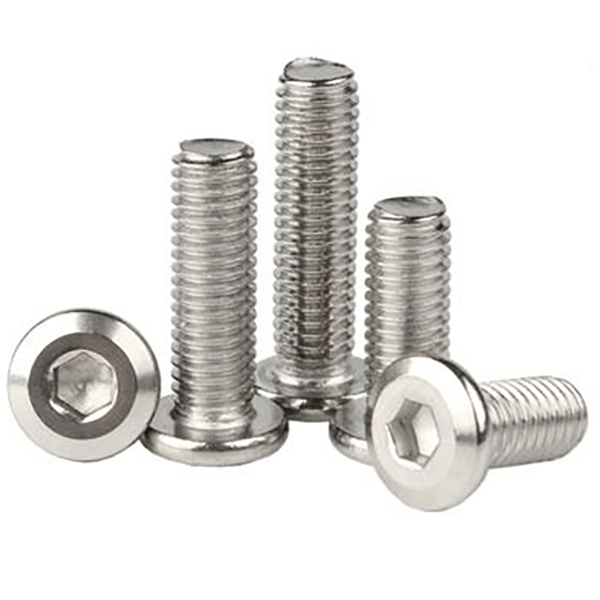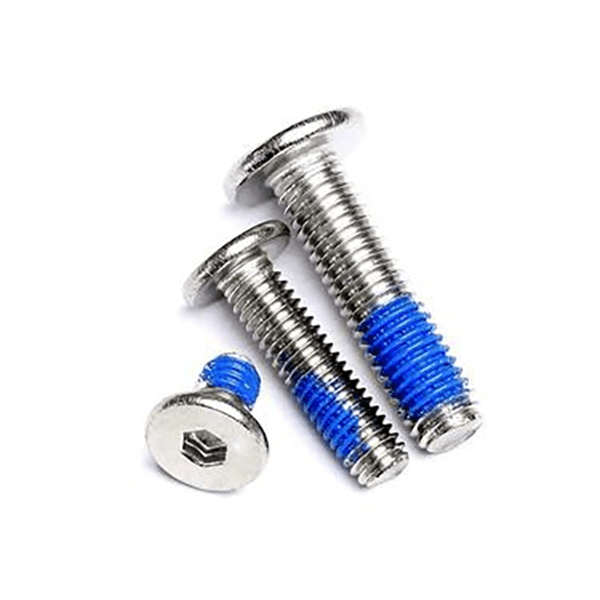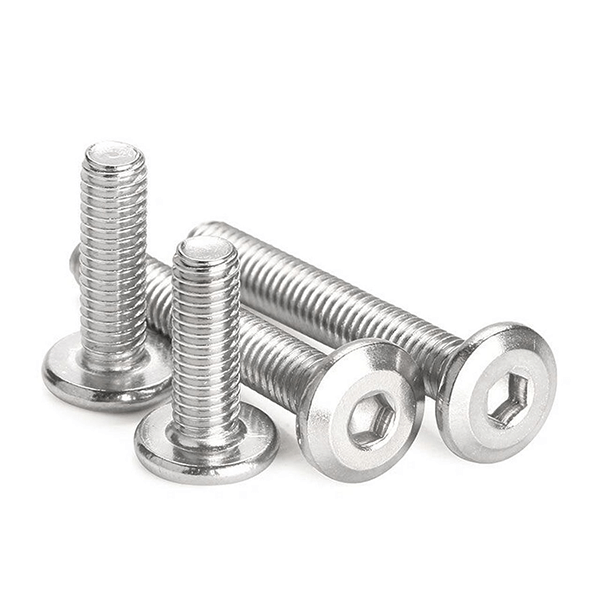Flat head socket bolts, also known as flat head socket cap screws, are a type of fastener designed for applications where a flush and aesthetically pleasing finish is required. Here’s a detailed introduction to these bolts:
Design and Function
Flat head socket bolts feature a flat, countersunk head that sits flush with the surface when installed, providing a smooth and low-profile appearance. The head is designed to be countersunk into the material it is fastened to, which allows for a flush or nearly flush installation.These bolts typically have a head angle between 82° and 100°, chosen based on the material and clearance needed. The hexagonal recess, or socket, is designed for tightening with a hex key or Allen wrench, offering a more streamlined appearance compared to screws with external heads.
Advantages
- Aesthetic Appeal: The flat head design enhances the aesthetic appeal in applications where the screw head is visible, providing a neat, clean design.
- Flush Fit: The flat, countersunk head fits flush with the surface, minimizing snags and potential for damage.
- High Torque Installation: The internal hex drive enables high torque installation without the risk of slippage, providing reliable tightening and loosening.
- Material Resistance: They can be manufactured from various materials, such as stainless steel, ensuring enhanced resistance to corrosion and high temperatures, ideal for demanding environments.
- Versatility: Wide sizes and lengths are available, providing a suitable option for any application and offering greater flexibility to industry professionals.
Applications
Flat head socket bolts are used in a variety of applications where a flush or low-profile fastener is desirable. Common applications include machinery, automotive, electronics, and other industries where aesthetics and functionality are important. They are also used in projects where moving parts need to pass over a fastened area, such as securing hinges, mounting plates, and other hardware.
Material and Torque Specifications
Flat head socket bolts are available in various materials, including stainless steel, alloy steel, and other metals, depending on the application requirements. The choice of material depends on factors such as corrosion resistance, strength, and environmental conditions.They feature machine screw threads, allowing them to be used with nuts or tapped holes. It’s essential to choose the right size, material, and drive type for the specific application and to tighten them to the appropriate torque specification to avoid damage from over-tightening.
Installation and Drive Considerations
Proper installation is crucial for the effectiveness of flat head socket bolts. Often, pre-drilling and countersinking are necessary to ensure the bolt head sits flush with the surface, particularly in materials like wood and metal. The drive type of a flat head bolt affects its installation and application, with options including slotted, Phillips, hex, Torx, and square drives.















